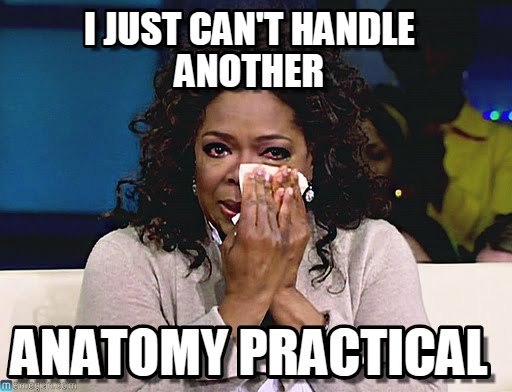#on super specific microbiology questions from last semester
Explore tagged Tumblr posts
Text
i love my lab job but my god my manager is so mean for no reason 😭😭😭
#🎀 - mello talks too much#he will like give me these random pop quizzes#on super specific microbiology questions from last semester#and then gets like passive aggressively upset when i don’t know it#or when i ask a question for a lab he acts like im genuinely the stupidest person alive#he treats my other coworker way worste tho so i can’t complain too much 🥲🥲#i work alone for most of my shift but whenever he walks in i’m always so tense bc i don’t want him to get upset at me over something 🥲🥲#hate to say it but i’m kinda excited for this job to end (i only have it for the semester)#just bc he stresses me out#LOL#then i’ll hopefully get a new lab job!! hopefully in a hospital this time
9 notes
·
View notes
Text
What to expect from ELM2
So buckle up because this post is going to be pure unadulterated nerdiness that I won’t even attempt to mask behind memes (much).
This post is about wtf ELM2 is all about, which to be honest is half the battle of actually passing ELM2. It’s long, it’s boring, and it’s all stuff I wish I’d had a better handle on before I got started.
The general vibe

You’ve just finished at least a year (maybe three years or more) of studying several papers a semester. You’ve had terms tests, and maybe lab reports and assignments, with an exam at the end. In medicine, there’s one paper every year, which lasts the full year, and nothing counts towards your final grade until October.
Until now you’ve had to maintain grades in the 80s and 90s at all times, and spent hours and hours awake worrying that you’ll miss out on that A+ you need to keep your GPA high enough to be competitive. Now the scale you’re marked against goes from 1 (clear fail) to 5 (potential distinction), and 3 is a (bare) pass. “Threes get MB ChBs” is your new “Cs get degrees”.
That said, I found the year pretty hard academically. It’s not that the content is that much more difficult than health sci, but there’s a lot of it. Whereas in health sci it’s usually pretty obvious what you need to know (literally everything), in med it can be more challenging to know what is expected and how you should organise your notes and your time.
Just when you’ve gotten used to (and oh so fond of) Blackboard, you’ll be thrust into the Moodle learning environment. Moodle is actually wonderful but it takes a while to find your way around.
Modules

Block modules are essentially body systems. When you are working through a particular system, most content you learn will relate to that system (sometimes indirectly). In ELM2 you do:
* Psychological medicine - lecture objectives and note summaries done by the lecturers are helpful
* Musculoskeletal (MSK) - mostly anatomy (including weekly labs and four dissection sessions), with a smattering of physiology. Use the weekly lab tests as incentive to keep on top of it.
* Cardiovascular (CVS) - my favourite block module because hearts are rad. A bit of anatomy with a lot of physiology (which is made fun by Matt Bevin aka Matty B). A big module for Pathology.
* Respiratory - fair bit of anatomy, heaps of physiology. Microbiology is important in this module as it touches cystic fibrosis, tuberculosis and asthma among other things.
* Gastrointestinal (GI) - reasonably straightforward module to round off the year. The anatomy is more complicated than I expected because you get a lot more detail than in HUBS.
Vertical modules are courses that carry over between all years of your degree. By far the most substantial in terms of content and time spent are:
* Pathology - weekly tutorials for a large part of the year
* Infection and Immunity - lectures supplemented by occasional labs
* Pharmacology - lectures and very, very occasionally supplemented with tutorials and labs (but really you’re on your own).
* Blood and Genetics are both very content heavy courses too, and you get a late start to Cancer but it gets pretty important towards the end of the year.
* Evidence Based Practice (epidemiology, basically) and Public Health are both pretty important but aren’t too content heavy (more skills-based).
Programmes
You also have three programmes for which you’ll do two hour tutorials most weeks of the year. They are Clinical Skills, Cases and Early Professional Experience (EPE).
Clinical Skills is assessed in your OSCE (worth ~ half of your final grade) while Cases and EPE type questions form part of your written examinations. EPE also has a clinical placement in a rest home.
Formative assessment

You’ll have a file in your ELM2 Home page called ELM2 Programme and Assessment Dates or something like that. Down the bottom it gives you a list of terms requirements and dates - take a note of these in your diary.
There are a few formative tests and assignments that come up during the year. Everyone freaks out about them way more than is necessary and you probably will too. The major ones are:
* ResearchSmart - online modules teaching you to do research, pretty quick to complete so get them out of the way when they open.
* Retained Knowledge Test - two of these per year for the duration of med school, to see how much you know and remember. It doesn’t form part of your assessment for your med papers so don’t stress about it, just get it done.
* Integrated Cases Formative SAQ tests - two of these, one each semester. Like a terms test but doesn’t count towards your final grade. Use them to get used to the way medicine examinations are structured, and as an incentive to stay up to date on your block modules, pathology material and Cases IDL tasks.
* Formative OSPE - OSPE (observed, structured practical exam) is a special hell that examines your grasp of Anatomy, Pathology and Histology by making you walk around a lab answering questions about specimens while weeping copiously (just me?). The formative exam is pretty much all musculoskeletal. Lab objectives and study checklists in your MSK lab book are very helpful.
* Formative OSCE - a practice consultation and your first experience of the Clinical Examination environment. You will probably run out of time. Practice lots of timed interviews in the lead up, 7 minutes doesn’t feel like a long time (that’s what she said).
* Genetics essay - a short, structured assignment outlining the relevant genetics of a monogenic disorder and reviewing a recent research paper into the disease. The structure of the assignment is pretty much handed to you so the only work is to look into the disease and find a paper you can write about. Don’t spend too much time on it, just do enough to put together a reasonable quality essay. I did it in an evening and did fine.
* EPE reflective essay - an essay about your rest home placement experiences and your journey in medicine. This is a cakewalk (and genuinely fun) for anybody who is reasonably self-reflective and can string a sentence together. If that’s not you, make a friend who can write well and will take a look at your work before you submit.
Final exams

Med exams are pretty daunting but my class all worried way more than was probably warranted in the end. (Still bitter about that Alzheimer’s question though).
People talk about focusing on “A and three Ps” when studying (Anatomy, Physiology, Pharmacology and Pathology) but I think Microbiology (Infection & Immunity) is also super important, including the lab procedures.
Basic structure is:
* OSCE (4 x 7 minute stations, 2 are clinical interviews, 2 physical exams. If you clearly pass at this point you’re done, but if not they’ll call you back to do 4 more stations a few days later)
* OSPE (50 x 1 minute stations, 2 questions per station, mix of anatomy, histology and path)
* Writtens x3 (3 hours each, can cover any and all content taught during the year but if you look at past papers you can get a feel for what tends to come up)
If you don’t manage to pass your final exams you can be offered specials so it won’t be the end of the world! But you probably will pass, because you’re smart and motivated and got into med to begin with :)
Got a burning question that hasn’t been answered here? OUMSA will likely run “what I wish I knew in ELM2” talks with some third years a week or two into semester. Your education officer could also be a big help if you have specific curriculum questions. Or you can slide into my DMs/Facebook me/Tweet me/etc if you so choose.
This post is part in a series on surviving second year medicine. The list of posts (updated as new content is put up) is available here.
11 notes
·
View notes